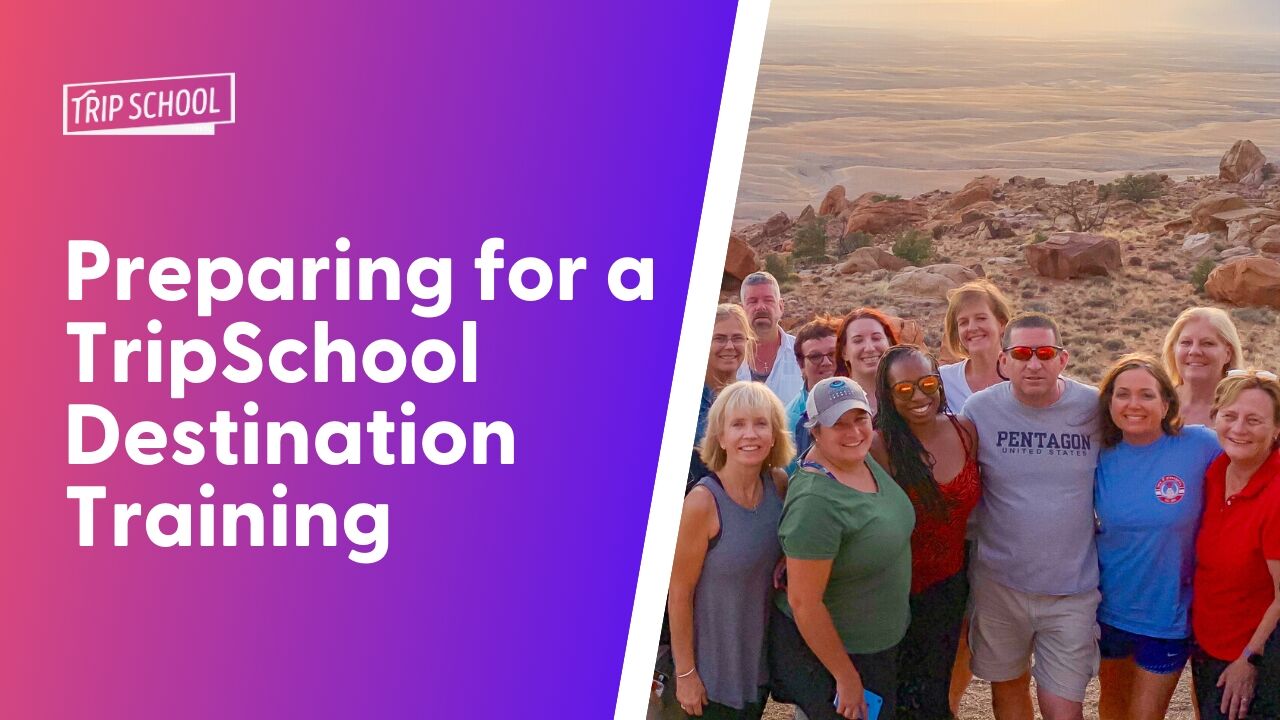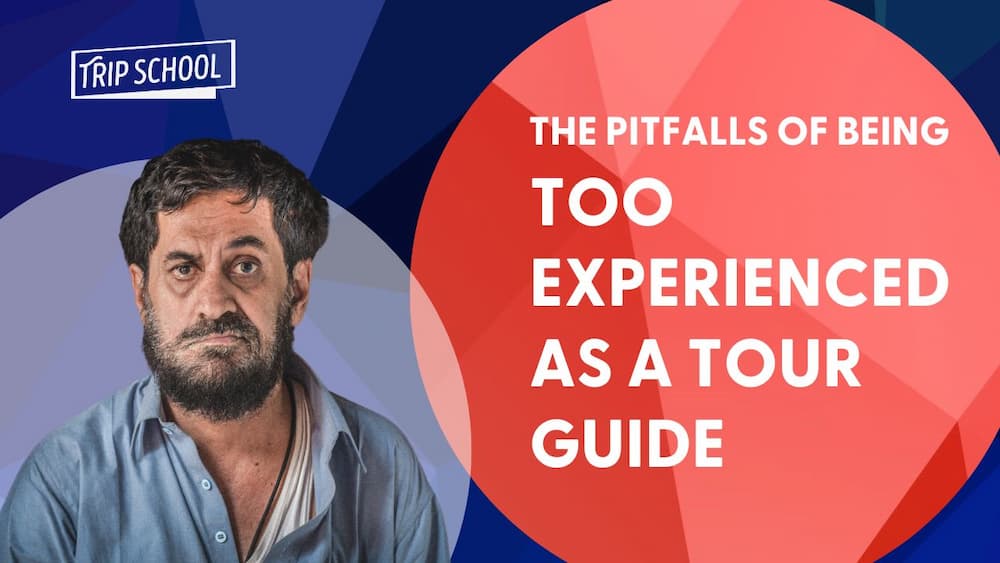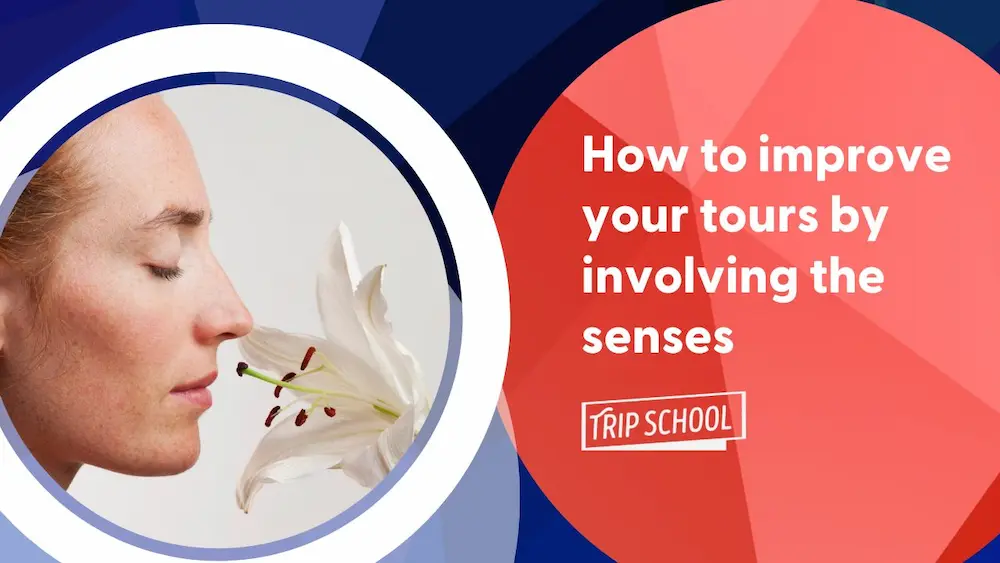Preparing for a TripSchool Destination Training
Preparing for your TripSchool Destination Training Class
If you’re reading this, hopefully you’ve signed up for a TripSchool course, or are at least interested in possibly attending one! We’ve put together this post to help you prepare for your trip.
This is a training, not a vacation!
TripSchool trainings are pretty intense. We have a lot of fun, but it is fundamentally an intensive destination training trip. Many who participate in our courses are preparing for trips they’ve been hired for, so please be respectful of their time and desire to focus on the training. Be prepared to walk your socks off. We go all day, well into the night. It is important to know yourself and your abilities: if you need a break, let us know if you need to skip a part of the training.
This is a training for tour directors.
TripSchool classes are on-the-road trainings that focus on giving tour directors the tools they need to quickly become (or appear to be) an expert on an itinerary, even if you’re new! While anyone is welcome to take our trainings, our main focus is training tour directors and guides who will be leading large group tours to these destinations.
Our trainings focus on wow moments, storytelling, and logistics.
We go out of our way to find magical little experiences that you can use to make your group’s day. Wow moments are the fastest way to impress your group when you’re new in the industry. Our mission is to make you a great storyteller. Storytelling is more than just commentary delivery; it is the art of crafting a narrative that takes your guests on a journey and it is crucial to making a particular sight come alive. Finally, logistics are everything you need to know to appear functional on tour. We make sure all the nuts and bolts are covered.
Take strategic notes.
Yes, you should be taking notes and photos throughout courses. We’re going to give you a notebook for noting locations of restaurants, bathrooms, walking routes, etc. Remember, the commentary is already written down in the Tour Guide Resources commentary books. Taking photos is a great way for you to remember where you were, but don’t go overboard. Remember to look around, be in the moment, and get a sense of the places we’re in so that you can describe them to guests when you’re leading your own tour! If you do take photos, iPhones will record the location of where you took the photo, which you can then access on a map to easily see where you’ve been.
Utilize Location Tracking.
If you have an iPhone, you should consider download JAS Location Tracker or Bluelane. It records the route you take through the city, and you can drop pins at sites you want to remember, then add a little note. With very little effort, you can go back and see exactly where you’ve been each day. Other apps, like MapMyWalk, work for Android users.
Keep track of what we’re doing on maps!
This process is what we call learning works by association. By studying maps and the itinerary ahead of time, you will already have an understanding of the layout of the cities and routes we’re taking; so, as we travel through the cities together, your brain will begin to make connections. Doing a little work before you arrive will allow you to stay in the moment in each city throughout the course. During training, don’t keep your head stuck in a map or on your phone, it will make retracing the route on your own or with your own group much more difficult.
Weather doesn’t stop us.
Bad weather doesn’t stop us. Be prepared! Know how you feel navigating on foot in the climate for the trip you’re taking. We do courses all year long in every kind of imaginable weather (yes, that includes rain, sleet, snow, and sunshine)! And, we don’t stop training because of the weather. Google the weather forecast in advance and ask yourself how you will react to the expected temperatures and any potential rain or snow. Pack accordingly. It is important that you know yourself and come prepared!
Be good group tour guests!
Listen, we all know it: tour guides can sometimes be worse than our most persnickety guests! Think of all the guest behaviors that you find annoying in your experiences as a tour director and be sure not to repeat them during our courses!
- We understand that you might know a lot of people on the trip and enjoy catching up with them; but, remember that when an instructor is talking, that is everyone’s time to take in what they’re saying, so please be silent and respectful. You might already know a certain area but please respect others who may be learning a site or destination for the first time.
- Remember that your talking on the bus affects other peoples’ ability to hear when an instructor is addressing the group.
- Don’t just wander off, even if you know the destination. We need you to check in with us before disappearing for a bathroom break. Often times we can advise you of closer bathrooms or can let you know when the next opportunity for a break will be so that you don’t miss anything or hold up the group with your disappearing act.
- Be on time. Or, text one of the instructors if you are going to be late. Everyone’s time is valuable, so please be respectful. We have a schedule to keep and are hammering out a lot each day!
There are lots of different guiding levels.
Some of you may be brand new to the industry, while others may be industry veterans learning a new itinerary. Some of you come from guiding schools while others have made their own way into the industry. We are all here to learn new destinations while becoming better tour directors and guides. In the spirit of creating a community, be kind and respectful to everyone in your training course.
Other guides are often the best referrals!
During training, you will be traveling with many people who will become new friends and great contacts in the industry. While Alan and Mitch are great resources for you, it is extremely important to make introductions with the other tour directors in your course and offer advice when it makes sense. Be nice to your fellow course mates, vendors, and other industry professionals that you meet. The friends that you make during training courses oftentimes will become the ones who will refer you to jobs with their companies, so make a good impression! Bring business cards to exchange with your course mates. If you’re newer to the industry, these trips are a great opportunity for you to observe your effect on people. Are people naturally gravitating towards you? Are you talking too much? Are people engaged around you? Think about your presence within the group because it will help you understand your effect on a group. This can be invaluable as you venture into an industry in which your presence and personality are absolutely everything.
Participate!
TripSchool fosters a happy, supportive environment where you are free to test your craft. You’ll learn quickly that Alan and Mitch have a lot to say, but they will also encourage you to practice talking about a sight in front of a group! Why not break yourself in during training rather than have a panic moment on tour? Please note that there is not time to have every single person talk at every single sight. If we did that, we wouldn’t get anything else done during the day.
This is your trip.
You should never think: I’ve already been to this spot, why am I here again? While Mitch and Alan do think you’ll learn new things from them (even at sights you may have been to already), they want to make sure you feel like you’re getting what you need from your training course. If you have specific requests based on an upcoming itinerary (or personal curiousity), send them in writing to Mitch or Alan ahead of time and they will try to be accommodated during the training course. One of the advantages of having two instructors is that the group can be split up as needed at any given moment to head off in different directions in order to make sure that everyone is happy with their experience. Sometimes the group might split up based on experience levels and other times the group might split up based on what sights people want to cover.
What happens after a trip?
Soon there will be an entire post on what happens after you’ve completed a training. For now, here are some of the essential things to know about your post-training experience. You’ll have access to the Resource Portal, a place where you can get notes, logistics, tips, and vendor contact information that was covered on the training course(s) that you completed. You will be invited to create a graduate profile that is accessible to tour operators looking for guides. We’ve had a lot of tour directors hired from the graduate profile board. You will also be invited to the private TripSchool Grads Facebook group where Alan and Mitch post job offers, give advice on logistics, and help with itineraries. The Facebook group is also a great way for you to stay connected with other tour directors who have completed TripSchool courses, for you to ask questions, and for everyone share useful information and updates from the road. Once your training is complete, you are part of the TripSchool family! We take pride in helping you any way we can, including sharing contacts in the industry and helping you improve your craft.







